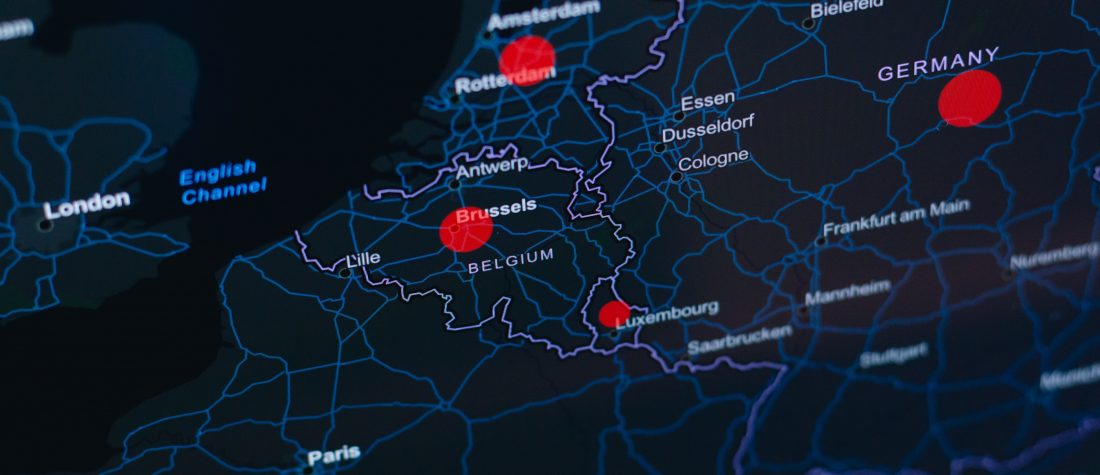This article is the fifth in a series of eight introducing the Liberal White Book: Europe 2030, the European Liberal Forum’s flagship publication highlighting the challenges that the EU faces and presenting a range of future policy options.
Europe’s future lies in its digital transformation – but this vision seems to be an ever-shifting paradigm. The challenges spawned from technological advancements must be tackled with policy solutions which maximise the benefits for all. Digitalisation without overstepping the limits of the ‘liberal ideal’. Individual freedom and technological advancement should both be encouraged.
What is at stake? Network coverage, ease of communication, connectivity and access, e-governance, e-commerce and measures governing the Single Digital Market. Whilst it’s true that some steps have already been made, there remain great geographical disparities in terms of progress. For the EU to become a truly digital leader by the end of the decade, more work needs to be done.
Previous acts
The European Union’s path toward digitalisation is built on numerous shared regulatory proposals; General Data Protection Regulation (GDPR) deals with privacy, there is the Network and Information Security ((NIS) directive and the Cybersecurity Act and the Digital Services Act (DSA) which addresses AI and digital market regulation. Policies like these must facilitate innovation whilst limiting any potentially damaging outcomes.
Where are we aiming?
Laws ensuring high-speed internet access for all and promoting digital literacy as an essential skill, particularly amongst disadvantaged groups, are essential. This would render the digital opportunities across the union equal. Digitalisation should be used to make existing policy areas more innovative and effective, from healthcare and education to mass media and immigration. Democratic tools which are fully online could be phased in across the EU by 2030. The Digital Single Market strategy can lend financial support to various key areas while limiting geo-blocking and harmonising regulation. This would put Europe’s digital industry in a stronger global position.
Equality and regulations
Through digital means, increased opportunities and economic growth will give citizens more flexibility and agency in their everyday lives. Still, Europe needs regulations that uphold transparency and prevent individual freedoms – especially regarding data and consumer rights – from being constrained. Democracy and democratic processes could be threatened by rapid technological developments. We have already seen this in, for example, the spread of information-based threats via social media. Regulations will need continuous updating to keep such threats in check. If access is unequal and regulation fragmented, then cross-border harmony would likely suffer. Discriminatory practices, such as geo-blocking, should be addressed; all citizens must be able to enjoy digital freedom – regardless of where they live or work.
The European way
The sheer variety of threats and opportunities that come with digital transformation will require a variety of economic, legislative and social measures. All these must pass through stakeholder assessments on the part of citizens, scholars and the digital market’s global players. Importantly, there is no need to follow a prescribed pattern based on ones that other global leaders have taken. There is also no need to create a ‘European Silicon Valley’; in fact, a network of digital hubs already exists within the EU – and will be ready to compete globally this decade. To achieve this, any existing uncertainty about the EU’s unified role must be eradicated. This can be achieved, in part, by harmonising national-level regulations, thereby opening the door to optimised public-private partnerships, increased transparency and the construction of private and civic trust in European institutions.
Europe’s path is unique
Its strategy will differ from that taken by other global leaders. Europe’s strategy must build upon the strengths of a unified, culturally diverse Europe with emphasis on healthcare, education and civil society. It must provide financial and legislative support for technology-based businesses. Legislation needs to be issued soon after technological advancements, but it should never be so hurried that it neglects the EU’s liberal values. Above all, citizens’ needs must never shift from their place at the heart of policymaking. Modern citizens need access to world-class governance, healthcare and media services in a digital environment. This must be supported by quality infrastructure, alongside comprehensible, enforceable and transparent legislation. This vision is what should guide Europe’s digital transformation.


